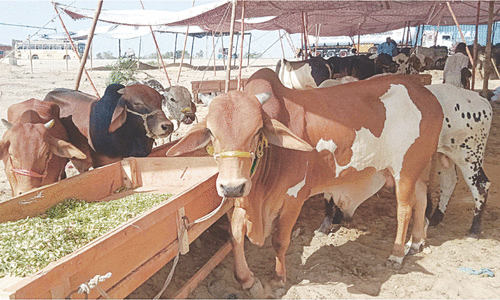FOR a number of days, a senior delegation from the International Monetary Fund, consisting of a director and the mission chief, made the rounds in Islamabad and Karachi, gathering impressions of how the implementation of the IMF programme has been going thus far. They met government leaders and opposition politicians, as well as the State Bank leadership, business stakeholders and the media. After their round of meetings, Mr Jihad Azour, the director of the Middle East department of the IMF, told media persons that the programme is “off to a good start”. This assurance alone is important because it should lay to rest all speculation that the visit was some sort of an emergency event due to slippages in meeting the targets. The team was clear that a formal review is scheduled for the end of October or early November, with the exact dates yet to be finalised, and that it is far too soon to start evaluating the programme’s success or failure. The most fundamental message of the team was for the authorities in Pakistan to stay the course; meanwhile, it was conveyed to the business elite and larger populace that without going through a difficult process of adjustment, the economy would not improve.
This much is fine. But the team also made some observations that merit further comment. In their assessment, there is a strong commitment to the programme and the reform targets envisaged in it at the topmost levels of the government. Mr Azour even said that the prime minister himself, whom he has met three times already, is very committed to the programme. We hope this is true, since sticking to a path of reform and not making further about-turns is important. Besides, Pakistan has little choice at this point in time but to continue and earn the Fund’s seal of approval after the first review, because meeting the Fund’s targets depend — crucially — on unlocking a large quantity of other financial assistance.
Ownership of the programme is critical to its success — there is no doubt about this. But if it is too soon to evaluate the programme’s success, it is also too soon to assess the quality of the ownership that the programme enjoys. Many of the more critical steps in the reform agenda have yet to be rolled out. All we have seen at the moment is a large macroeconomic adjustment, in the form of currency depreciation, high interest rates and a fierce tax effort launched since July. Many other steps, the real ones as a matter of fact, have yet to come. But those steps will require ownership beyond just the federal government level. The opposition parties, the provincial governments, and indeed the citizenry itself, have yet to be called upon to play their role. It is when that time comes that we will know how much ownership the programme actually enjoys.
Published in Dawn, September 21st, 2019









































